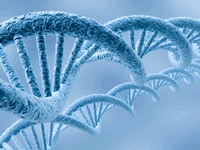The Supreme Court Rules: Collection of DNA - Podcast
Criminal Law & Procedure Practice Group Podcast
 On June 3, the U.S. Supreme Court decided Maryland v. King, a criminal case in which a rape and assault rendered identifiable DNA material that did not match any existing samples in the DNA database. Alonzo King was subsequently arrested in an unrelated matter and, under Maryland's DNA Collection Act, a DNA sample was collected. King's DNA sample matched the sample from the earlier rape and assault case. In an interesting 5-4 decision, with Justice Scalia in dissent, the Court decided that King's DNA sample can be used in his prosecution for that rape and assault.
On June 3, the U.S. Supreme Court decided Maryland v. King, a criminal case in which a rape and assault rendered identifiable DNA material that did not match any existing samples in the DNA database. Alonzo King was subsequently arrested in an unrelated matter and, under Maryland's DNA Collection Act, a DNA sample was collected. King's DNA sample matched the sample from the earlier rape and assault case. In an interesting 5-4 decision, with Justice Scalia in dissent, the Court decided that King's DNA sample can be used in his prosecution for that rape and assault.
Held: When officers make an arrest supported by probable cause to hold for a serious offense and bring the suspect to the station to be detained in custody, taking and analyzing a cheek swab of the arrestee's DNA is, like fingerprinting and photographing, a legitimate police booking procedure that is reasonable under the Fourth Amendment.
Featuring:
- Mr. John Elwood, Partner, Vinson & Elkins LLP
- Mr. John G. Malcolm, Senior Legal Fellow, Edwin Meese III Center for Legal and Judicial Studies, The Heritage Foundation
- Moderator: Mr. Dean Reuter, Vice President and Practice Groups Director, The Federalist Society
[Return to the Practice Groups Podcasts menu]






